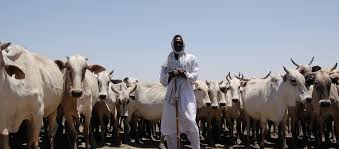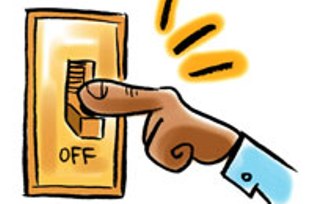Climate Change and Mental Health : part two
Well then, settle in everyone. Thanks for that glass of
water, lovelee.
So lights off and let’s listen to the rest of the story.
So then, where were we…..
Scenario
Three
Climate
change means that the incidence of extreme weather events increases. It also
means that they are not completely predictable.
So one
day, Ali, for that is his given name, is busy getting his father’s herd ready for the long journey
to the best pasture lands, which are over the next two ridges beyond his
village. So he and his younger brother get their provisions ready and they get
the journey going. Along the way, Ali is listening to freshly minted music on
his smartphone and his younger brother is whistling along. The young boy is
excited. He is heading to Form One, in the same secondary school his brother
did his final year. Ali is all set to go university, he now feels like a grown
up and can’t wait to step out on his own. So this holiday, Ali’s father is a
proud man. His two sons are doing excellent. But to teach them the value of
physical work, he has sent his two scions away for a week to look after the
cows while the older son teaches his younger brother some useful life lessons.
So the
two get to their destination, and while away the time taking care of the
semi-autonomous herd. As evening
approaches, the weather gradually changes. The gentle wind becomes gusty,
carrying bits of dried grass this way and that, swirling them around in a dance
only it knows. There now is heard the shrill sharp cry of a bird, as it flies
across the sky. It becomes cooler. The cows throw their noses in the air,
sniffing this way and that. Some become agitated. Ali understands these signs
well, .…rain is coming.
 |
| A herdsman with long horned African cattle. Can you see Noora's? - image courtesy of dabang sudan |
So he
gets up and hurries along the herd to higher ground. He then spies some shelter
usually left for herders at night. He gets his younger brother inside. As soon
as he gets inside, lightning cuts across the sky, followed by the sound of a
mighty thunderclap. The first big drops of rain fall on the roof of the shelter
with a splat! Ali is a bit surprised. He hadn’t expected the rains so soon. He
knows of the December showers but a heavy downpour such as the heavens were
promising was a bit unexpected.
Ali dashes
outside and takes one last look at the animals, they have come close together
and seem resigned to the heavens washing them freely. Ali gets back into the
shelter, secures the door and reassures his little bro who is trying hard to be
a man. Ali switches on his phone, takes note of the time and switches the
gadget off. He needs to save power so that later on, he can call his family
back home and enquire of their safety.
His mind
wanders, taken by the sound of the beating rain. It rains and pours, by the
gallons, truckfuls. At some point, Ali stops hearing the mooing of the
distressed animals and he wonders worriedly if anything has happened to them.
He thinks of school, university, new friends and prospects awaiting him, a
whole new life. Ali is the first from his village to go to such a prestigious
national institution. Everyone is proud. They don’t tell him so, but he can see
the proud light in the eyes of his elders when they talk to him. He sees the
way the young ones look adoringly at him, their big brother Ali.
Eventually
the down pour stops and Ali gets out to look at the animals. It is now pitch
dark but Ali, the experienced herdsman he is, casts a surveying eye over the
shivering mass of animals. Some see him and utter a gentle moo. He weaves through
the herd, pulls a stuck calf up and helps a nursing mom find her calf. He
separates the bulls from the females and calves and then leaves them be.
He gets
back to the shelter and finds his brother fast asleep. According to the tried
and tested folklore, sleeping when it’s raining is the sweetest. One falls into
a deep dreamless sleep and wakes up refreshed and to a fresh new landscape. Ali
dozes off and wakes up the next morning to fully survey the damage caused by
last night’s downpour.
He finds
that the herd’s numbers are more or less the same. They had gotten to higher
ground just in time. But the white cow, the one with the long curved horns, the
one his sister Noora loves is missing. Ali panics a bit, he had promised his
baby sister to keep her favorite cow safe. Noora loved the sound of the bell
around its neck. Oh how disappointed she will be! Ali thinks as he rounds up
the herd, wakes up his little brother and tries to call his papa on his mobile
phone. The phone can’t get through. Ali is now outright worried. He shouts at
his brother to get to the front as he gently but rapidly speaks to the now
alert livestock. He unleashes his cane and waves it in the air. It is time to
go.
Over the
next three hours, the two young men and cattle trudge through the mud and
slippery ground as they make their way home. Eventually, the see their village
at a distance. Ali can’t quite recognize it. Everything is in shambles. Pieces
of tents and clothing are strewed all over. He sights what appears to be pieces
of his old exercise books, the ones he kept as mementoes of the fun times in
Primary school. Ali rushes the cows along as his eyes take in the shock that is
his home. Suddenly a thought crops up in his mind. Are his high school
transcripts dry? Where are they? Where is his dad? Is that Noora crying? His
mum is holding Khalil in her arms as she gives instructions to some person he
can’t recognize.
Ali, now
distraught runs to his mum and questions her in rapid Amharic interspersed with
Somali. Where is everyone? What happened? How did it happen? What are they
going to do? His mother attempts to quieten him, telling him as much of the
story as he can comprehend in his state. Suddenly, he hears a joyful shriek.
Noora is cradling her favourite white cow whose bell is tingling. She was in
the herd after all. Ali now spots his father, who has just come back to the
homestead. The semi-permanent house the family occupies is still standing, but
things in it are wet and in a heap. His father signals him over.
Slowly,
the story comes out. It rained too heavily, Hassan, Ali’s dad explains. And it
was unexpected. We were all in the house and sat still expecting it to cease.
It never did. It all happened in the space of a few minutes. It was Noora who
noticed the water seeping into the house. Hassan gestured to the family to get
up and stand on the beds and any other high place. The family watched
disbelievingly as the dark violent water swept up their belongings, dashed them
against each other and threatened to take the bed too.
The
flood dissipated as quick as it had come. But the damage left behind was
massive. Their electronics were ruined. Some of the goats and weak cows that
were left outside were washed away. In fact, everything that was outside was
washed away . Only the heavy things were left behind. Hassan is gloomy. Last
year a time like this there was drought. Half their animals succumbed. This
year there were flash floods, another number of livestock is gone. He shakes
his head. These weather patterns are crazy. Hassan has lived here all his life.
He has never seen anything like this. He shakes his head again, wistfully,
wishing for when he was a boy, when the seasons were predictable.
Now he
is financially ruined. How will he take care of his family? Noora and Khalil both
need to finish school and be responsible adults. Ali needs to go to university.
His mum is sick. And now his property is ruined. Gone. Suddenly he wishes he
was dead. Or somewhere else. The weight of the world on his shoulders is too
much. Over the next few days, as he tries to pull himself together, Hassan
knows that Ali can’t go to university this year. His heart aches to have to
disappoint his son, but he has no choice.
Ali, on
hearing the news tries to be strong but a tear escapes his right eye. He had
been so happy, nursing the joy here in his heart. A whole new life!
Independence, a chance at being the engineer he always wanted to be. He wanted
to study civil engineering, come back and help the government build good
quality roads in this part of the country, the place he called home. Now his
dream is up in the air. Ali knows how hard it is to bring up a calf to a full
grown adult bull or cow. It will take months and perhaps years. Good pasture.
They have to start from scratch.
Ali
sighs, and walks away to the hill near the village. He loves this place. Its
quietness helps him to think. To review life. To evaluate his chances. He knows
he can’t go to college this year. He becomes forlorn and for the next few weeks
both he and his beleaguered father become broody, sad and short tempered. They
pick quarrels with anyone. So everyone avoids them. They feel that each has
failed the other. Hassan, for not getting the fees to send his son to school
and Ali, for not being there to help his family when he was needed. Ali
additionally feels that he is a burden to his father. He retreats into himself
and becomes a shadow of his former self. He stops eating and finds it hard to
take the few remaining animals out to pasture. Sometimes he can’t concentrate.
Hassan on noticing these changes in his son blames himself even further and
takes to chewing khat. He absconds on
his responsibilities leaving his wife and mother of his children, Naema, often
bitter and overworked. There is tension in the household.
But
there’s a silver lining in the cloud. One day, Ali’s principal at his former
high school comes looking for him. He had heard of what happened and in the
traditional African way, came to comfort the family. He brings with him good
news. There is a rich businesswoman who came visiting the school the other day.
She is an alumnus, a former student, and she wanted to pay forward a good deed
someone had done for her. She wanted to sponsor a bright student to college.
The principal suggested
Ali. Would he be interested?
Ali was
overjoyed but confided in his former schoolmaster, he had little energy these
days. He could barely summon the energy to walk back home. School in a faraway
land was too difficult. The principal looked him over for a while and appeared
in deep thought. He then took his former pupil’s hand and started talking to
him. Hours passed by. The principal eventually leaves but not before telling
Ali to be coming to the school every Saturday afternoon, for there the two
could talk in silence and privacy. In the next one month, the teacher counsels Ali. He explains to him
what early depression is and slowly Ali comes back to life, as a wilting tree
planted in the banks of a deep mighty river. He blooms again.
Ali
eventually heads off to college, and studies both engineering and climate
change, sharp kid he was. He aces school, graduates with honors and gets
employed by a reputable company. Incidentally the company wins a government
tender to build roads in the province where Ali hails from. Ali is picked as
the head engineer, partly because of his mastery of the trade and also because
he is a good bridge between the company and the locals.
Ali
oversees the construction of the roads, which are of course climate proofed. He
also teaches the community around him what climate change is and how it affects
them. In fact, Ali enlists the services of his formers schoolmaster, now a
trusted and respected elder. Together, the two slowly but surely help the
community adapt to climate change. They are now on the right path thanks to
Ali.
Ali is an example of a bad story turned into a
good one.
Ali is a
winner.




Comments
Post a Comment